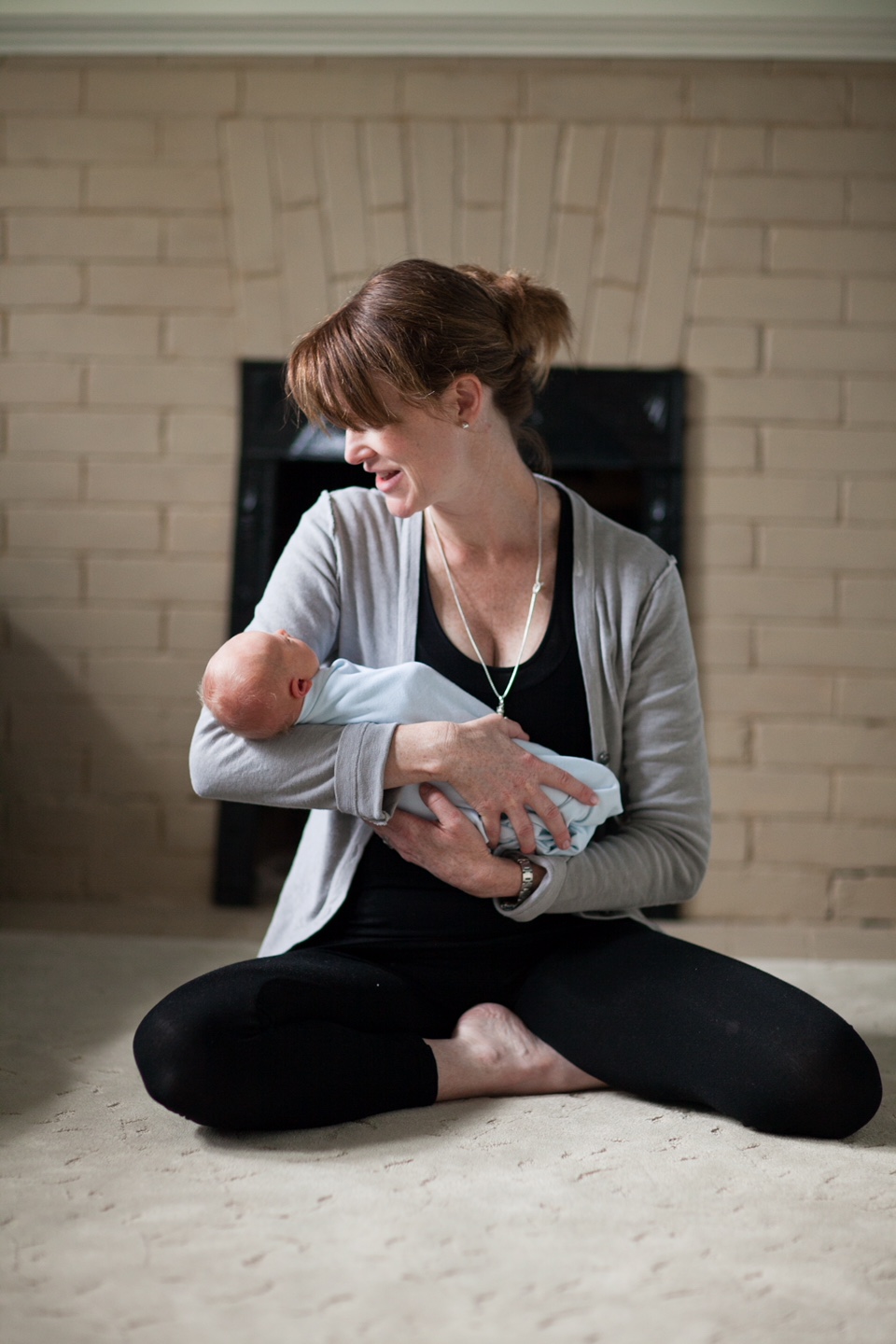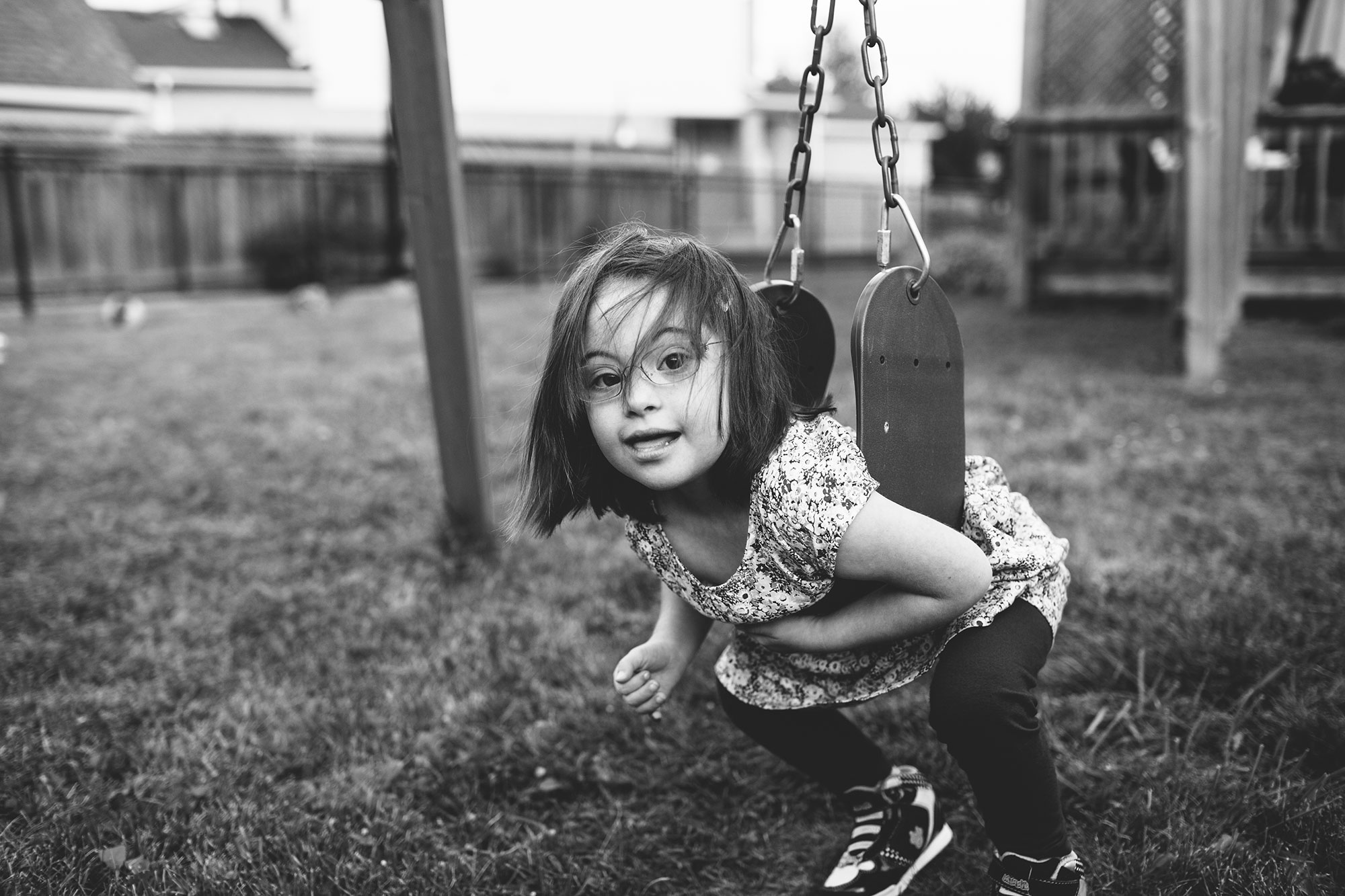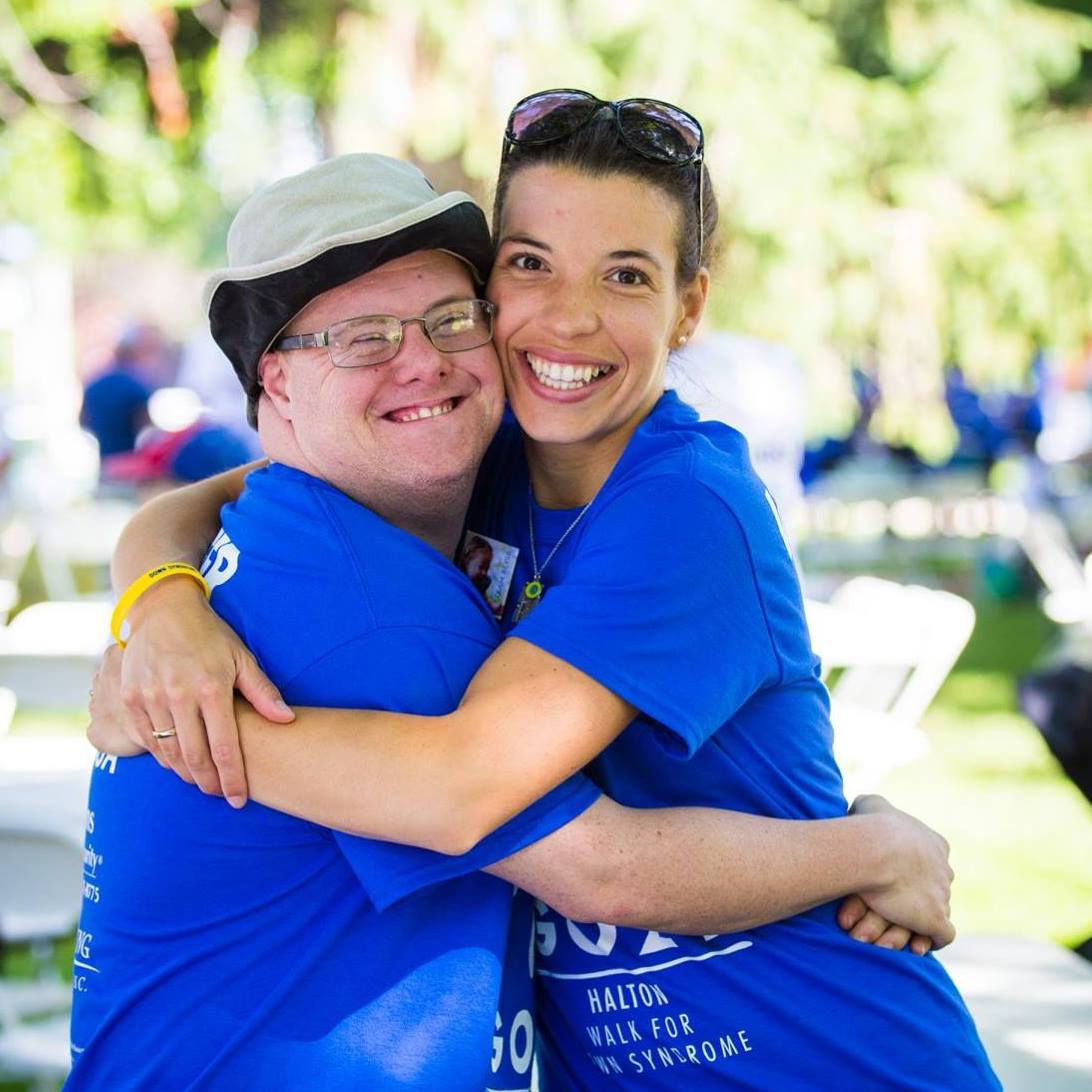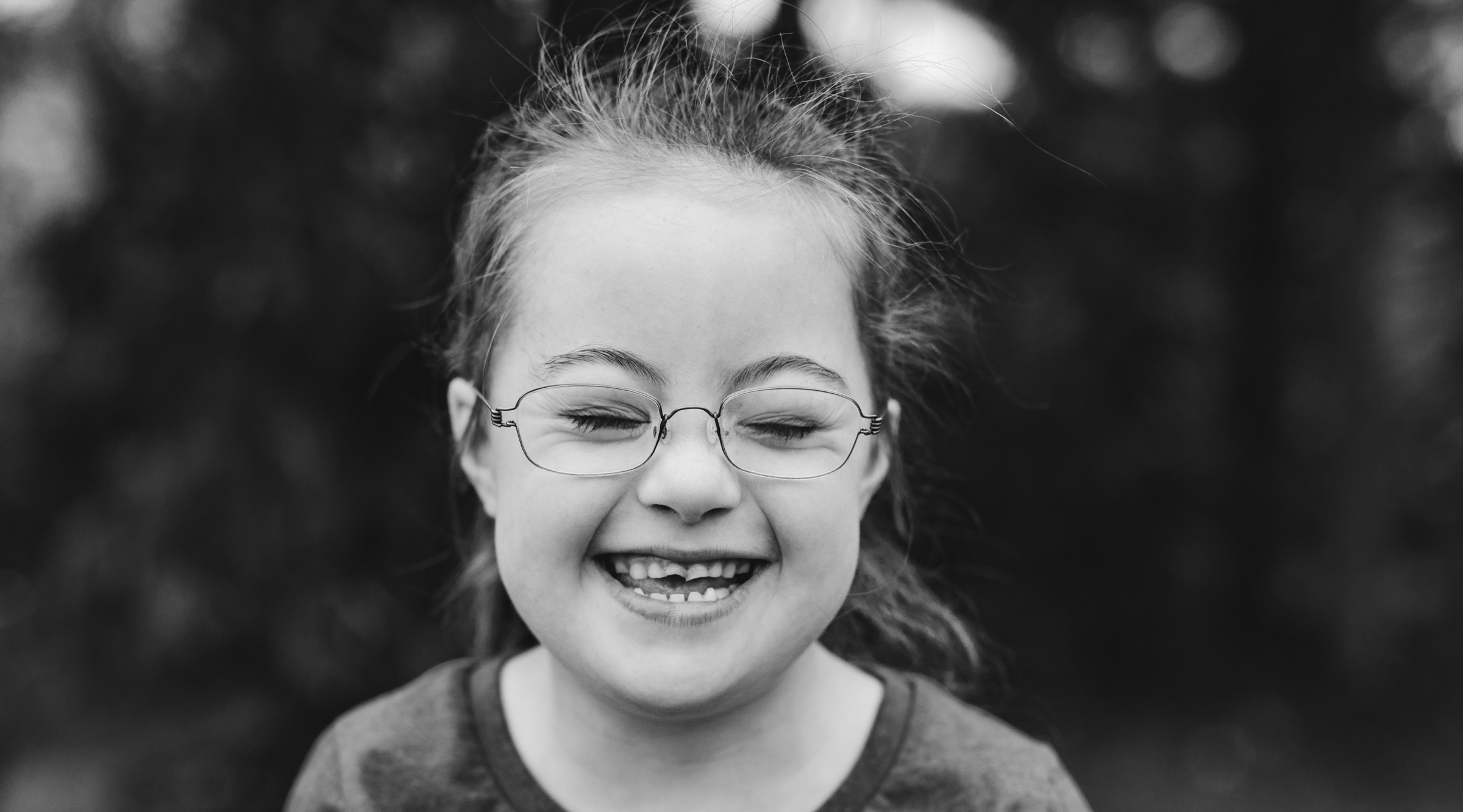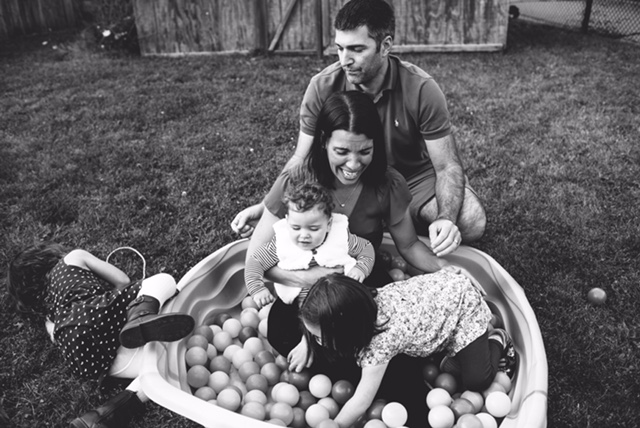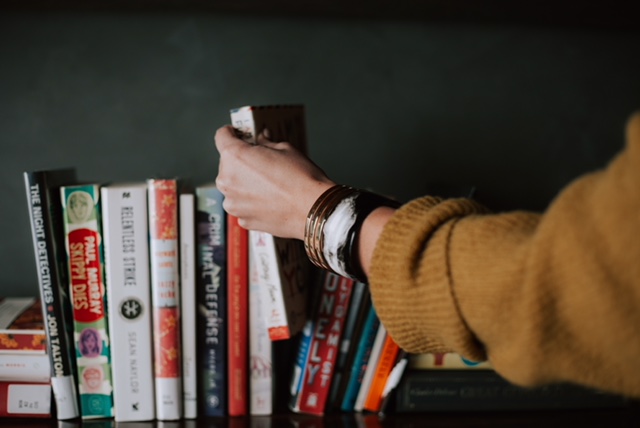“In order to accept other people’s disabilities and to help them grow, it was fundamental for me to accept my own.” ~Jean Vanier
Those who know me may find it hard to believe there was ever a time when I was anything less than sympathetic to the cause of the rights and inherent value of people with Down syndrome. But the truth is harder to hold, and I sit down with it now, grasping at its blurry edges, as the full picture comes into focus.
There was a time when I wanted nothing to do with people with disabilities. I spend many hours volunteering in my youth: caring for babies and children – not surprising; then with the elderly and those with mental illness – but I found that too depressing for my soaring spirits; with the downtrodden and hungry, which of course filled me with admiration for my own good deeds; with the illiterate, for I’ve always been hungry to teach; with animals, because before I knew I loved children and would teach, I had a tenderness for animals and a need to care for them. But never, not once, did I choose to volunteer with those with disabilities.
There’s an ugly memory that haunts me from when I was around nine years old. My best friend’s mom worked at the local children’s centre for disability and our hometown hockey team was doing a meet and greet for these poor disabled children. For – it was clear – that was how they were viewed: poor and disabled. When my friend invited me, I wasn’t sure I wanted to go along, but I did anyway. Some of what I saw scared me. Children in wheelchairs with twisted limbs I didn’t understand. Children incoherent and incomplete and in pain. I could see despair on their faces and I looked away. What if this form of anguish impacted me? What if one day I found myself in a wheelchair or without my wits? This was supposed to be a celebration, but the whole set up, however well meaning, felt fake to me, a sham. How could one possibly be happy without all the benefits bestowed upon the fully abled? I didn’t sense genuine happiness from these children, and I left wishing to distance myself from that world as far away as I could. And so I never once volunteered with people with disabilities. Never. Once. Until…
Over time, you could say my outlook matured. I did, after all, play with the little boy Jeremy at my school who had Down syndrome. My best friend and I loved this curious creature whom we played with at recess when it suit us. One day he fell off the play structure and hurt himself. While woodchips were plastered to his face by his snot and tears, he reached his arms towards me and I hoisted him up. When he wrapped his limbs around me like a baby koala I held him tightly while my friend ran to get the teacher for help.
I eventually coached gymnastics to kids of all abilities, including kids with Down syndrome, but somewhere, a small part of me knew I had kept myself at a safe distance from that sad community I once bore witness to. A community I never wanted to, hadn’t asked, to be a part of.
The birth of our second daughter changed everything. Once never, until…
Until I took the time to get to know people with Down syndrome, I would never fully understand what they had to offer.
Now, when I volunteer my time speaking to students in schools, often alongside my friend Emily who has Down syndrome, I make sure to tell them the story of my own mistakes so they know how far I’ve come. That it is possible to understand something, like what is right, in your head, but not truly feel it in your heart.
The story I tell them goes something like this:
“When I was an elementary school student like you, there was a little boy at my school who we’ll call Jeremy. Jeremy’s sister was my age and Jeremy was a few years younger than us. Jeremy was a little boy with Down syndrome. My friends and I used to play with him sometimes at recess.
One school day, we were having a school-wide track meet. Everyone in the school got to run in a few races. We had a huge playground at my elementary school with a big open grassy field, so that is where we would be running our races. When my teacher told me, and the other kids, to stand at the start line, I was nervous. This was going to be my first running race ever. I had to run 100 meters.”
At this point, I get the kids to start the race, “On your marks, get set, GO!!!”
“When the teacher yelled go, I ran as fast as I could around the field. I ran so fast that I won the race.
I was still out of breath when I was called back over to the start line. It was already time for my next race. This time, I had to run a distance twice as far.”
I ask the kids to tell me how far that would be (good, they’re paying attention), then we start the second race together, “On your marks, get set, GO!!!”
“I’m running, running, running. I used the same strategy as the first race, which was to run as fast as I could, but this time I could feel that there were kids behind me. I used every last bit of energy I had. I pushed myself to get to the finish line and I did it! I won again for the second time that day!” The kids all cheer.
“Kids I didn’t even know were coming up to me and patting me on the back. I was feeling pretty great.
But the next part of the story is where things get tricky. I was soon feeling not so great.
Two of my best friends were waiting for me at the finish line. One of them stuck a water bottle in my face, which I gratefully accepted and guzzled the whole thing down. All the water was gone. The next thing I knew, my two best friends were giggling. I started to laugh too, until I realized I wasn’t in on the joke. And that they were laughing at me.
“That’s Jeremy’s water bottle!” my friend said. If you remember, Jeremy was the little boy with Down syndrome.
“Argh, you guys!” I threw Jeremy’s water bottle to the ground and wiped my mouth like I had been poisoned. My friends ran away, and I was left standing there, embarrassed and angry. Poor Jeremy. If he was feeling thirsty after his race, he would have no water to drink, but I didn’t think about that.”
As I finished telling this story to a large group of students today (in French, actually!), all the kids in the room fell silent, letting the weight of that final pronouncement set in. The next part I love, because I get to go back and fix the past, or at least make amends by helping to improve the future. I ask the kids why they think I threw Jeremy’s water bottle and how they would feel if someone did that to them? Then I ask them the most important question of all: what could I have done differently? Every time I give this talk the answers blow me away. Children understand about kindness; how to give it and take it away. They have knowledge of that power and it is our job to teach them to use it wisely.
We spend time talking about kindess and the true mark of greatness. I remind the students I may have won two races that day, and while some would see that as a mark of greatness, where I still had a lot to learn was in how to be a friend to a person who may not be seen.
I tell students I have met people with Down syndrome from around the world, by traveling to the World Down Syndrome Congress in India and Scotland, and you know what I’ve learned? That people with Down syndrome want to be treated like everybody else: with love, respect and kindness.
That when there is an absence of those things, and a lack of connection, then there is anguish and there is pain for all involved. (but I don’t say that last part to the kids, I don’t want to scare them!)
The great irony came at the end of today’s talk, which I happened to be giving at my own daughters’ school. As I finished telling the story of throwing Jeremy’s water bottle to the ground, my daughter Elyse, who has Down syndrome, sauntered across the room and came to sit on my lap. She reached for my water bottle, which stood on the table behind me, and as I looked on at my friend Emily performing a dazzling ribbon routine on the screen, one of her Olympic performances we were showing the kids, Elyse took a big messy slurp out of my water bottle. She didn’t throw it to the ground or drink all the water. She just looked up at me with her big brown eyes, through her wire-rimmed frames and said, “Thank you, mommy.”
You’re welcome my sweet girl. Thank you.

